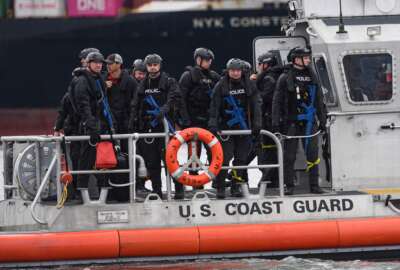DoD 2012 Budget: Where’s the money going?
Todd Harrison, the senior fellow for defense budget studies at the Center for Strategic and Budgetary Assessments, joined In Depth with Francis Rose to discuss ...
wfedstaff | June 4, 2015 8:34 am
By Courtney Thompson
Federal News Radio
The Defense Department increased its 2012 budget request by 3 percent reaching a record high since the last fiscal year.
The department’s FY12 budget proposal is nearly $676 billion, which includes approximately $553 billion in discretionary funding. But one might wonder where exactly those dollars are going.
Todd Harrison, a senior fellow at the Center for Strategic and Budgetary Assessments told Federal News Radio that together healthcare and personnel costs account for more than half of the prospected budget.
“Contrary to what a lot of people would think, it’s not driven by the wars in Iraq and Afghanistan,” Harrison said. “It’s driven by the added benefits that have been given to retirees and the greater usage of those benefits that we’ve seen over the past decade.”
The expert on defense budget studies added that since the Pentagon employs almost half of the federal workforce, “people costs” are a large part of the DoD’s budget.
Within the last ten years, he said the department’s healthcare expenditures have increased by 85 percent. In the new fiscal year, military healthcare will account for ten percent and another 45 percent will be allocated to personnel costs.
He added the increase in expenses will likely create future problems for the department’s funding.
“As we look out over the next ten years, I think most people agree that the Defense budget has probably reached a peak and its going to start declining over the next ten years,” he said. “As that happens, if the wedge of funding that goes to personnel-related costs continues to grow, then that means things like procurement, research and development and peace-time operations are going to get squeezed tightly in the future.”
To curve spending, DoD requested a monthly increase of five dollars for military retirees who pay for the agency’s healthcare system. He said that the new premium will be a “much more modest approach” than a similar proposal for a $50-monthly increase which was not passed in 2007.
“I’m afraid though that a five-dollar-a-month increase is not going to be enough to provide that incentive,” Harrison added and also that the goal of raising the costs is to discourage military retirees from switching their current benefits in the private sector to join DoD’s healthcare plan.
In regard to recent concerns about financial record systems at the Pentagon, Harrison said hopes for a full audit of the DoD’s spending practices might be too high and that an analysis would not greatly impact the department’s efficiency.
“It’s something DoD should have been able to do long ago,” he added. Harrison suggested that the department implement a strategy that focuses less on efficiency and more on fixing financial burdens with consideration of the limited number of available resources.
“This is a huge organization, a huge annual budget, and so it’s going to be hard to get control of, but nevertheless, we should keep trying,” Harrison said.
RELATED STORIES: Congress has ‘clout’ to force clean DoD audits
Panetta faces tight budget, high demands at DOD
Budget cuts force DoD to choose manpower vs. technology
Courtney Thompson is an intern with Federal News Radio.
(Copyright 2011 by Federal News Radio All Rights Reserved.)
Copyright © 2024 Federal News Network. All rights reserved. This website is not intended for users located within the European Economic Area.





